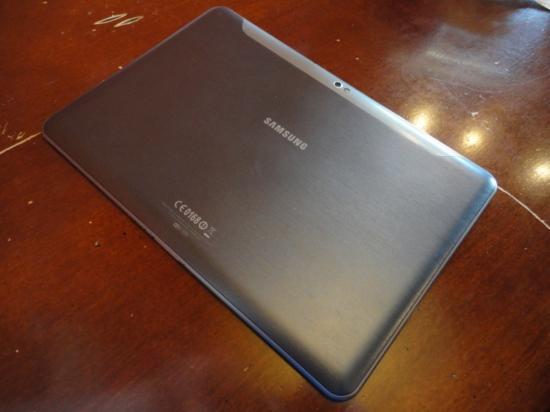
The past two weeks in tech was a prime example of just how crazy and unpredictable the mobile world can be. But throughout all of the mind-blowing news, one question has remained in the back of our minds (well, mine at least). No, I'm not talking about Steve Jobs and the future of Apple – truth is, things are probably not going to drastically change for Apple anytime soon. I'm talking about webOS and what will happen to it over the next few months, and years even.
After reading the headline "HP announces plans to 'discontinue operations' on webOS phones, TouchPad," the first thought that crossed my mind – only for a fraction of a second – was that webOS would soon be a thing of the past. But after reading the full story, it became clear that HP was merely nixing their efforts in the mobile hardware industry and have plans of licensing webOS, much like Google with Android or Microsoft with Windows Phone. This wouldn't be a bad idea as the software is immaculate but HP and Palm have clearly proven their inept abilities to make quality hardware for mobile handsets. The problem with licensing webOS? It is currently taboo for wireless providers. Platforms like Windows Phone 7 and Android already having a large piece of market and mind share. Not to mention, the price of an Android license is a whopping $0. HP and Palm's webOS handsets, however, have struggled in sales and mind share since day one; it may face a similar fate in the licensing business to.
A rumor from Digitimes this morning, however, hints that not everyone has written the software off. Samsung supposedly has an interest in buying webOS to compete more directly with Apple and Google. Let me begin by (wiping the drool form my lip and) reminding you all that this is only a rumor at this point, nothing more. As per usual when something of this magnitude happens, there have been countless rumors of HP/webOS acquisitions: some say Google will buy HP, others believe HTC will buy webOS and I've even heard someone mention Research In Motion acquiring the web-based platform. The chances of webOS getting scooped up by an outside company are slim. Slim, but totally possible.
That said, if anyone were to snatch up the web-based software, my vote would go to Samsung for a handful of reasons.
It's safe to say that one of the biggest shortcomings from the webOS camp has been hardware and lack of variety. HP and Palm both churned out similar devices that hardly improved on the failed designs before them. This isn't the first time we've heard of a possible webOS phone made by another OEM, but just the thought of webOS running on half-decent hardware is enough to make any tech junkie weak at the knees.
I wouldn't go as far to say that Samsung is the best hardware maker for Android, but they are definitely among the top dogs. The main issue with Samsung's hardware is their tendency to overdo it with plastics, resulting in a lightweight, paltry feel. Sammy's bread and butter, though, are their displays. As Dustin Earley, a friend of mine from over at Android And Me, stated in a conversation about this very topic, "webOS was made for Samsng's Super AMOLED displays" (or something to that effect). I couldn't have said it better myself – the rounded corners and high contrast make the two a perfect pair.
Not only that, but Samsung could market this as something totally new: choose your hardware, then choose your OS. We know that webOS and Android are similar in the fact that can both run on the same hardware. So the possibility that upon the first boot you can choose to run webOS, stock Android or TouchWiz would give Samsung a leg-up on all of their competition. It's a far-fetched idea (just like most of my crazy theories), but it's totally doable. Keep in mind, Samsung hired Steve "Cyanogen" Kondik and is opening up to the development community, so maybe they'll let him work his magic.
I have loved webOS since I first got my hands on it with the original Palm Pre and my love for the software was rekindled with the TouchPad. But just because a few of us junkies like the platform doesn't mean it would be worthwhile for Samsung to pay cold hard cash to acquire it. Application support for webOS is still sparse, and the software is still rough around the edges in some areas. I'm sure a few developers snatched up a TouchPad during the fire sale, and seeing as it's one of the easiest platforms to develop for, said devs may take interest in webOS. But it's a large gamble to take.
My only fear is that Samsung will try to put their own spin on the software (think TouchWiz) and pull from the simplistic beauty that is webOS. Adding flashy visuals and unnecessary changes to the UI could start webOS down a path that no fan wants to see it go down. If Samsung can take webOS for what it is and only make the necessary changes, this deal (if even true) could be a truly awesome thing.
What do you guys and gals think? Should Samsung be the one to take webOS under its wing? Can the hardware alone turn the platform into the smartphone users' platform of choice? Or will sparse application support continue to be an Achilles' heel? Also, how would you feel about a phone dual-booting with webOS and Android?